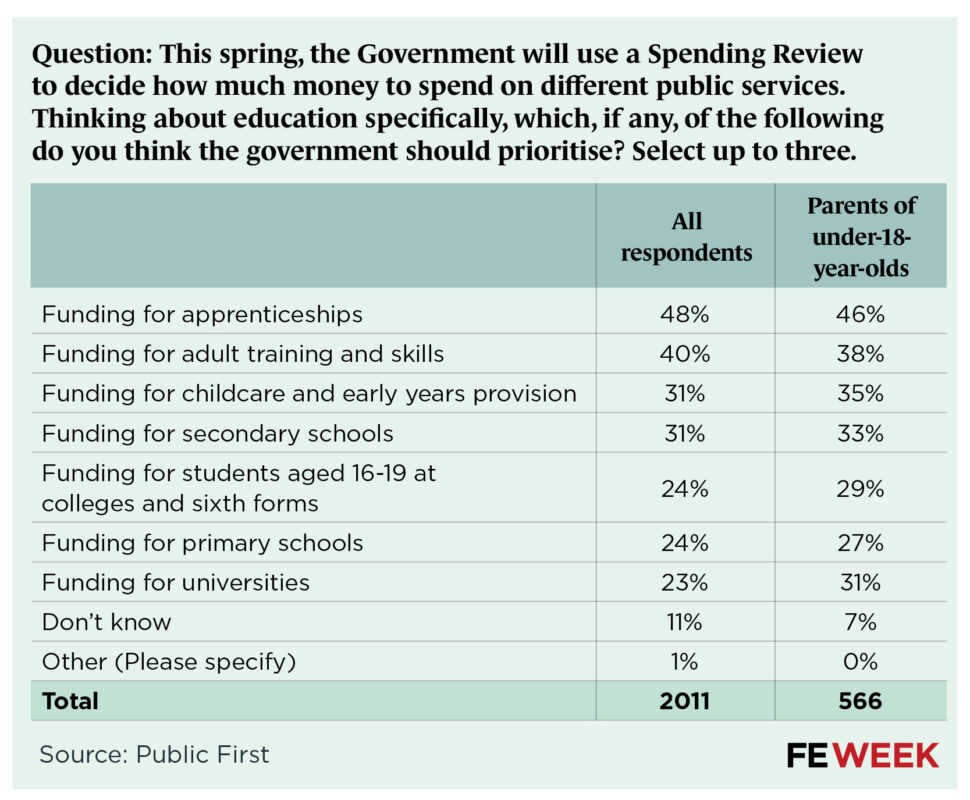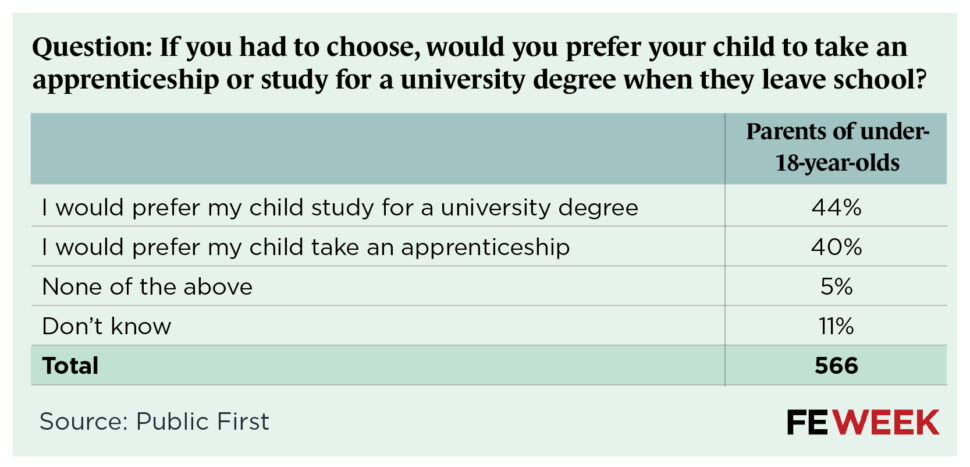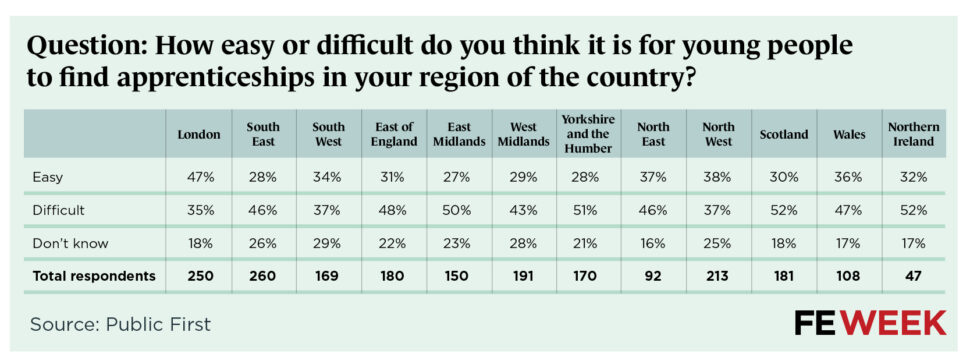Public opinion favours spending on apprenticeships above all other education sub-sectors, polling shared exclusively with FE Week has revealed.
A Public First survey of over 2,000 UK adults saw 48 per cent put apprenticeships at the top of their wish list for the government’s spending review – above childcare, school and university funding.
But it revealed a perception that apprenticeships are difficult to secure, with people in all areas bar London reporting this was a problem for young people.
The poll assessing public attitudes to apprenticeships also found 44 per cent of the 566 parents involved in the survey would prefer their children went to university instead, while 40 per cent favoured apprenticeships.
Labour, in opposition, vowed to transform the current apprenticeship levy – a tax on large employers that funds the whole apprenticeship system – into a “growth and skills levy” that also funds other forms of training. However, the extent of its reform hinges on what the government decides in June’s spending review.
Chancellor Rachel Reeves has already warned she will make “difficult decisions” to solve an alleged £22 billion public finance black hole and reportedly told the Department for Education to find £1 billion in savings before the autumn Budget.
Skills minister Jacqui Smith told the Financial Times this week that businesses would only be able to use money raised through the levy for traditional apprenticeships in the “short term”.
She said the government’s ability to allow levy funds to be used for non-apprenticeship training would depend on how much funding the DfE receives at the spending review.
The apprenticeship levy is set to generate over £4 billion this year, yet the Treasury only gives the DfE a ring-fenced budget of £2.7 billion to spend on apprenticeships in England, while the devolved administrations of Scotland, Wales and Northern Ireland receive around £500 million between them.
This leaves a Treasury margin of at least £800 million.
Mike Crowhurst, director for skills at Public First, said: “Investing more in apprenticeships and skills training is a clear priority for parents and the wider public, even if they would still marginally prefer their own children to go university.
“The decline in apprenticeships on offer to young people is also cutting through across the country. As we head into a challenging spending review, boosting apprenticeships and skills would be both smart policy and politics from the government.”
Survey says
The survey results showed 48 per cent of UK residents want the government to prioritise funding for apprenticeships, followed by 40 per cent wanting more cash for adult training, and 31 per cent for both childcare/early years provision and secondary schools.
Funding for universities came bottom of the priority list, with 23 per cent of respondents choosing this option.

Less than a third (31 per cent) said they would consider doing an apprenticeship themselves, while 86 per cent of parents said they would support a decision by their child to take an apprenticeship.
However, when asked to choose between their preference of their child going to university or taking an apprenticeship, more parents favoured the degree path.

The poll highlighted generational differences – 53 per cent of 25 to 34-year-old parents were more likely to want their children to pursue university, while 67 per cent of over-65 parents chose apprenticeships.
There was also a regional divide among people’s perceptions of how easy it is to find an apprenticeship.
In England, the worst area was Yorkshire, where 51 per cent of adults thought it was difficult to find an apprenticeship, followed by 50 per cent of adults in the East Midlands.
London was the only region where poll respondents were more likely to say young people found securing an apprenticeship easy rather than difficult, with 47 per cent saying there was no problem.
But official DfE data shows London had the lowest rate of starts (612) per 100,000 population for the 2023-24 academic year in the whole country.

















Your thoughts